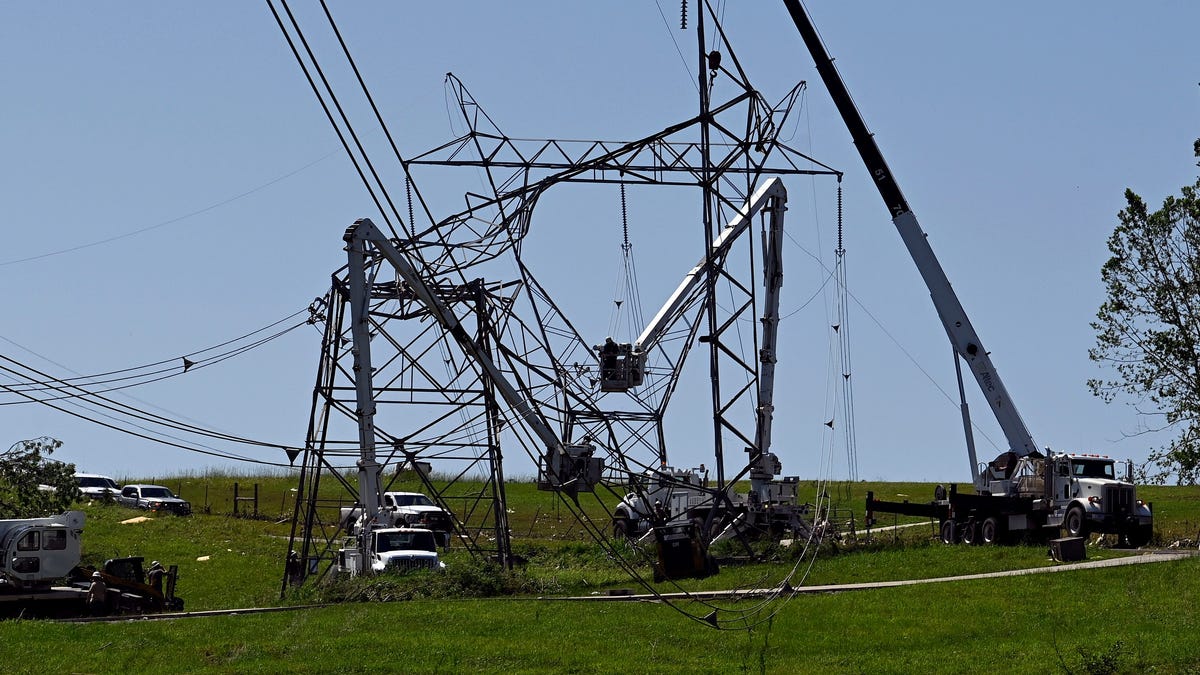Utility Bills: Campaign Funds, Bribes, and Lobbying? Advocates Suggest Your Rates Might Reflect These Costs
Every month, millions of Americans receive their utility bills and often assume the high costs are solely due to the scorching weather.
However, this is just part of a larger picture. Customers may unknowingly fund a variety of expenses through their utility bills—ranging from trade association fees and lobbying activities aimed at increasing rates to even country club memberships, as pointed out by consumer advocates. In some extreme cases, legal allegations suggest that these costs may include bribes paid to politicians.
Although these charges may add only a few extra dollars to a monthly bill, they can accumulate significantly over time. For instance, a seemingly minor excess on a $150 bill can contribute to an overall troubling trend where overdue utility payments have surged 8.4% to $17.4 billion since December 2023, according to the National Energy Assistance Directors Association (NAEDA). They also anticipate that utility shut-offs could rise significantly, affecting an additional 300,000 households, bringing the total to 3.5 million by year’s end.
Utilities often dominate service areas, limiting customer choices, noted experts.
“If every customer ends up paying a few dollars more each month, over time, that can result in collections of hundreds of thousands of dollars for services unrelated to their energy costs,” explained David Pomerantz, executive director of the watchdog group Energy and Policy Institute (EPI).
What Costs Are Utilities Charging Customers For?
Utilities often disclose that they factor in expenses such as trade association fees, outside professional services, and costs related to social and service club memberships.
For instance, when seeking regulatory approval for rate increases last year, Peoples Gas included expenses for memberships at notable venues like the Mid-America Club, described as “Chicago’s premier venue for building diverse relationships and networks,” as well as Olympia Fields Country Club, which supposedly provides access to business networking opportunities.
Utilities assert that memberships in such professional organizations and trade groups offer valuable research and benefits for their customers.
However, critics argue that some of these groups lobby for rate hikes or oppose initiatives that could disrupt utility profits, such as residential solar power and energy efficiency measures, according to Pomerantz.
Moreover, utilities have directed funds to 501(c)(4) non-profits, or “social welfare” organizations that can accept unlimited donations and are often involved in lobbying or political activities, including supporting or opposing candidates.
For instance, a significant bribery scandal involving FirstEnergy was exposed in 2020, highlighting its financial influence on the now-indicted former Ohio House speaker Larry Householder. In this case, FirstEnergy and its affiliates contributed millions to 501(c)(4) organizations, which subsequently donated $60 million to political action committees.
“In return, the utility secured a $1 billion bailout funded by ratepayers for its underperforming nuclear and coal plants, alongside another provision that protected the profits of FirstEnergy’s Ohio units at the expense of consumers,” Pomerantz stated in a report.
Utilities’ Perspective
Ultimately, rate increases for utility companies must be sanctioned by state regulators, and not all requests are granted.
For example, Peoples Gas requested $5.2 million for specific expenses when it sought a rate increase, but regulators reduced that request by $172,000.
By regulations, costs related to executive clubs and memberships should not be charged to customers; instead, they should be absorbed by the shareholders, according to Peoples Gas.
Despite this, some experts are skeptical about whether this is genuinely the case.
“That may be true,” remarked Matt Kasper, research director at EPI. “However, questioning the company is also warranted; why include costs associated with places like Olympia Fields Country Club and various city clubs in their proposals for rate adjustments? Where exactly is the customer money going?”
FirstEnergy, the utility embroiled in the bribery scandal, stated it has enacted reforms.
“FirstEnergy, now under a new Board of Directors and management team, has made substantial strides to propel the company forward,” the company remarked in an email statement. “Significant improvements have been made to enhance our culture of ethics, integrity, and accountability, which includes establishing an effective compliance program and advancing policies and procedures for transparent stakeholder reporting.”
State Reactions
This year, eleven states are evaluating legislation aimed at ensuring utility accountability to prevent these extra political-related costs from being passed on to consumers.
The states that have added legislation to control costs for consumers are Arizona, California, Illinois, Maryland, Minnesota, New York, Ohio, Pennsylvania, Rhode Island, Utah, and Virginia.
Additionally, Colorado, Connecticut, and Maine enacted similar laws last year.
Critics state that more action is necessary. While states manage rate regulations, each state relies on the Federal Energy Regulatory Commission’s (FERC) financial forms.
“FERC employs a standard accounting and reporting system that enables utilities to identify which expenses can be recuperated from ratepayers,” noted Tyson Slocum, the energy program director at the nonprofit advocacy organization Public Citizen. “This allows utilities to determine what costs are recoverable and what are not.
“We suggest a different approach,” he continued. “Assume that no financial contributions to trade groups or similar organizations can be recouped by the utility unless specifically requested. Alter the standard approach.”
Last year, Representative Kathy Castor (D-Fla.) proposed a bill instructing FERC to prevent utility companies from charging for political expenses, which includes any advertising, marketing, or public relations efforts that might influence elections or the appointments of public officials, as well as sway public opinion on certain legislation or affect rate calculations, among other factors.
The legislation would also ensure that utilities are not allowed to recover costs associated with dues or fees paid to trade or industry associations, as well as specific nonprofit organizations. Utilities that do not comply or violate the regulations would face penalties.
“Most people believe that they are only paying for the electricity itself, its delivery, and the associated infrastructure,” Pomerantz remarked. “Very few realize they are also funding lobbying, advertising, and other unrelated activities.”

